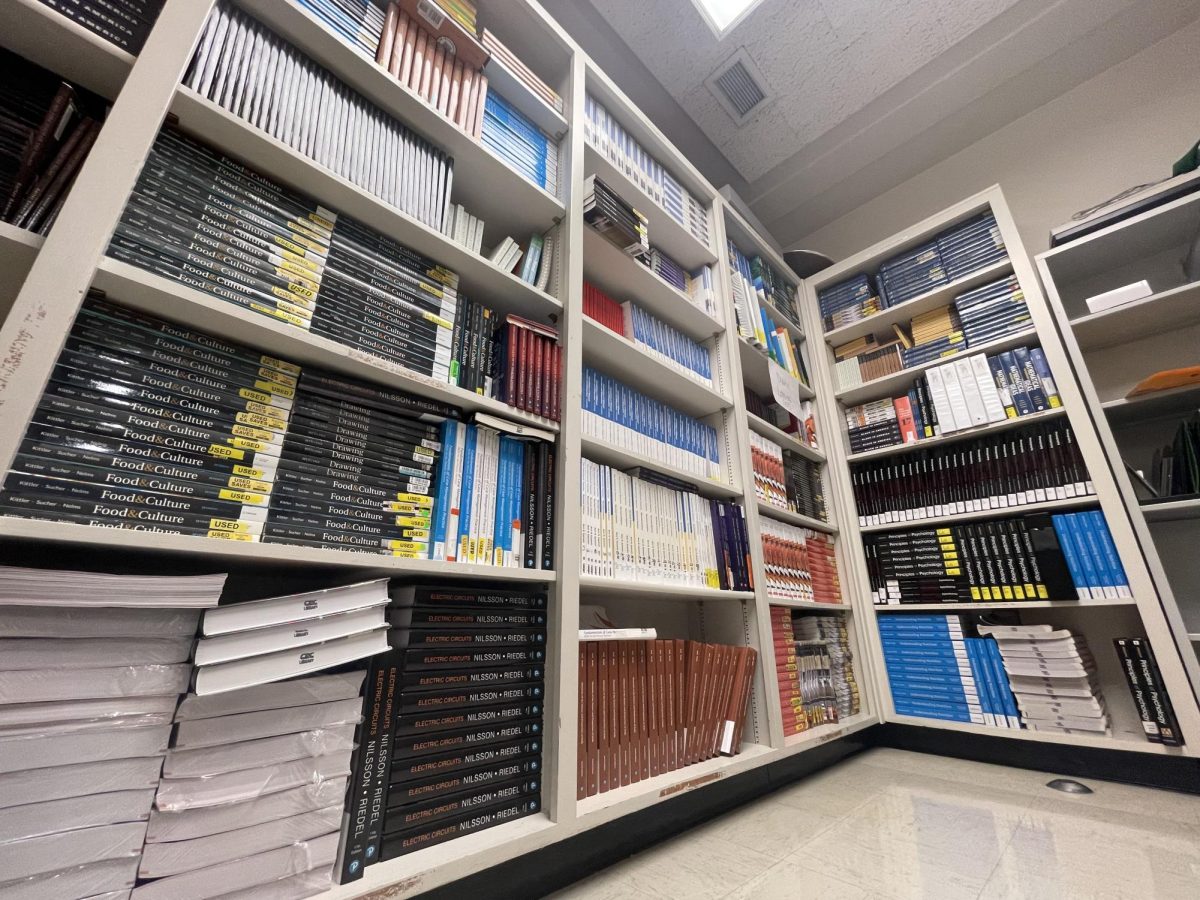Participation in the Zero Textbook Cost program has increased to two-thirds of faculty with Cosumnes River College leading the district in the number of ZTC courses offered.
The campus is looking to set an example for other colleges by innovating new ways for students to access resources at no cost to them, said Andi Adkins-Pogue, faculty lead for CRC’s Open Educational Resources and Zero Textbook Cost project.
“This really is an equity issue,” Adkins-Pogue said. “If we’re concerned about creating a space that helps as many students as possible, we need to look at the cost of textbooks.”
Sixty-five percent of the courses offered at CRC are part of the ZTC program, totaling over 850 courses, including most science, technology, engineering and mathematics courses.
“Students were talking about childcare issues and being able to purchase food for even just groceries,” Adkins-Pogue said. “Not having to purchase a textbook was allowing them to meet basic needs.”
Flenn Madarang, a 27-year-old biology major, said the ZTC program and open education resources are better than traditional schooling.
“I actually look for ZTC classes, being that they’re more affordable,” Madarang said. “Usually the price of textbooks determine whether or not they’re going to sign up.”
Science and math courses tend to have some of the higher priced textbooks and Adkins-Pogue said more students should have access to free material for those courses.
Mathematics professor Roy Simpson said textbook prices have been skyrocketing for 20 years. He has been a strong advocate for offering OER and ZTC material for all students.
Simpson said the OER material starts with a textbook, but each book is then edited over hundreds of hours. This self-authored material can be published online and used by other educators across the country.
“Every course in our pipeline for the STEM students has an OER, but it’s up to the instructor to make the adjustments,” Simpson said.
The science department has developed their own lab materials and made nearly every course part of the ZTC program. The mathematics department has the majority of courses added to the program and Adkins-Pogue said more are being updated regularly.
The ZTC program has been funded through relief funds, grants and other pooled funds allocated for the program. They will now seek more grant funding to reach their goal of making resources available to students at no cost.
Adkins-Pogue said applications for these grants will be submitted in the coming weeks. An application for a federal grant has already been submitted for non-STEM courses, otherwise known as high-impact discipline courses like the arts or psychology.
As of spring 2023, the program has saved $2 million for CRC students.
“We have been making so much momentum with this, the faculty are getting excited about it,” Adkins-Pogue said.
Zero Textbook Cost program continues to grow
These books were purchased as class sets for the Zero Textbook Cost program. If a professor adopts a class set of textbooks, students are able to check out a copy at no charge.
0

